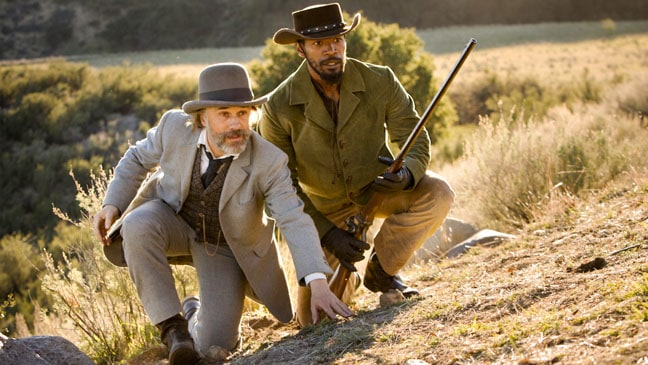
Slavery is without a doubt one of the darkest periods in American history. Heck, we can possibly go so far to say that it is the worse time in American history. Thankfully, slavery was abolished on December 18, 1865; however, that doesn’t mean we aren’t reminded of the painful history through film and television. The showcase of slavery in cinema is very important as it happens to remind America why it was so wrong in the first place. Some of the most infamous pieces of art that showcase the cruel world of slavery are The Roots, The Color Purple, 12 Years A Slave, or Django Unchained.
The Roots documented the tribals and tribulations of Alex Haley’s family line from Kunta Kinte’s enslavement to his descendants’ liberation. This eight-part mini-series was lauded by critics and audiences, with The Roots garnering nine Emmy wins including Outstanding Limited Series, Outstanding Writing in a Drama Series, and Outstanding Directing in a Drama Series. The last film depicting slavery to win any significant awards was 12 Years A Slave, A Steve McQueen vehicle that documented Solomon Northup, a man living free until he was abducted and sold into slavery. The film was praised for its graphic, but unflinching portrayal of its subject and it managed to nab three Academy Awards: Best Motion Picture of the Year, Best Performance by an Actress in a Supporting Role, and Best Writing, Adapted Screenplay. There’s no shortage of slavery films or television in media, though the genre is notably lacking in the past couple of years. A couple of movies like Harriet have popped up, but it’s not a big staple in the industry at the moment. The big question is, why?
Well, slavery was never a hot commodity to begin with. It’s an ugly subject to cover so audiences wouldn’t necessarily flock to each and every feature that depicted the difficult time period. One of the key reasons superhero films have dominated the box office is because they’re generally a popcorn delight meant to bring smiles and joy to audiences across the globe. Sure, you have your dark films like The Batman or Watchmen, but the genre is perfectly suited for mainstream audiences, nevertheless. Slavery movies are for the select group of filmgoers who are looking for something a bit more challenging and complex. A niche basically. It’s not that slavery can’t be box office gold. 12 Years A Slave made $187.7 million. Django Unchained made $425.4 million. The Color Purple made $142 million. Plus, another key factor in the decline of slavery is that times have considerably changed.
Slavery will always be etched in the history books, but with the country dealing with new forms of racism such as police brutality following the Goerge Floyd incident, the culture has notably shifted in displaying the modern struggles of Black Americans. Oddly (and offensively) known as the black experience, films and series such as Them, Black & Blue, Queen & Slim, and Nia DaCosta’s Candyman are the hot topic in the mainstream society. That genre has notably died down too as the constant depiction of watching Black Americans struggle grew tiresome and frustrating due to Hollywood seemingly cashing off tragedies that have claimed many lives. These types of films are extremely important because it gives the world an important perspective going on in today’s society, but consistently putting out content of this nature is completely unnecessary.
When it comes to slavery movies these days, the genre has been done so much that it’s hard to find a new angle when it comes to the subject matter. Mostly, the depiction of slavery is often seen as Oscar bait. The term is based on the notion that a select film was made for the sole purpose of getting an Academy Award nomination. The four categories descripted as Oscar bait films are the historical drama, the musician biopic, the melodrama, and the quirky indie comedy, according to the Hollywood Insider. There’s really no place in today’s society for slavery movies as the culture continues to evolve each passing year. Usually, you’ll at least get one or two every other year, though Harriet is the last film to receive any type of recognition for this brand. Could slavery grow in popularity in the coming years? Never say never, but the historical pieces will always remain a niche when it comes to cinema. As I previously stated, it will forever be marked in the history books of America, but nearly avenue has been explored when it comes to this topic. This isn’t to say that we’ll never see another slavery movie again, this Oscar voter favorite will never reach the heights Westerns or comic books films have.
 Follow Us
Follow Us





